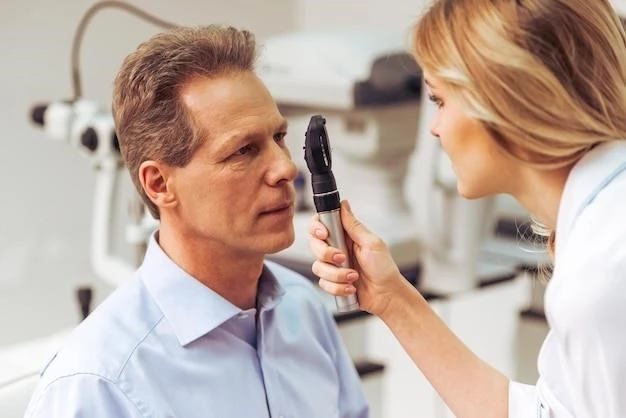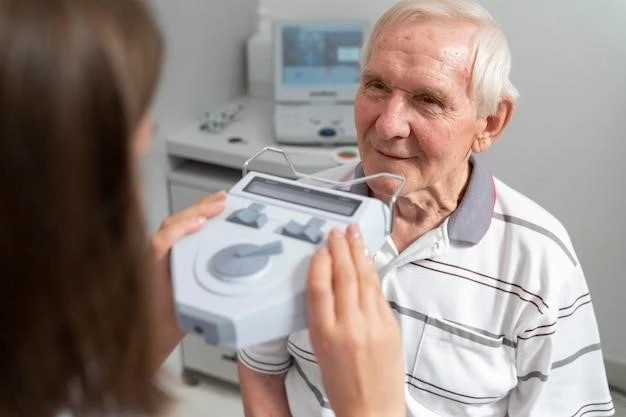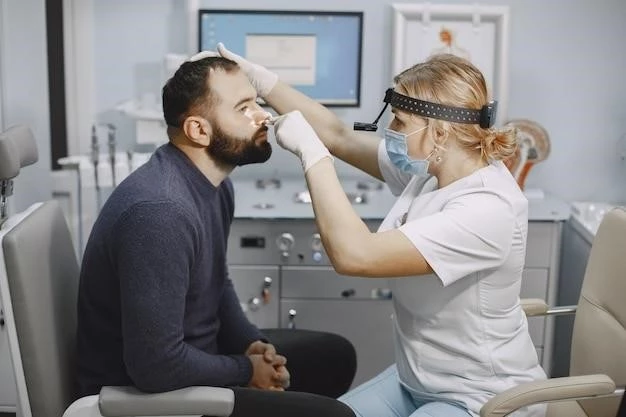Article Plan⁚ Disease⁚ Oculo facio cardio dental syndrome
Introduction to Oculo facio cardio dental syndrome
Oculo-facio-cardio-dental (OFCD) syndrome is a rare genetic disorder that affects various aspects of an individual’s health. This X-linked dominant condition mainly occurs in females and is characterized by abnormalities in the eyes, face, heart, and teeth. Individuals with OFCD may experience congenital cataracts, facial dysmorphism, dental anomalies like radiculomegaly, and cardiac defects.
Given the complexity of OFCD syndrome and its multi-system involvement, early diagnosis and proper management are essential. Understanding the distinct features associated with OFCD can aid healthcare providers in identifying and addressing the specific needs of affected individuals. Further research and studies are crucial to enhance our knowledge of this rare condition and improve diagnostic methods and treatment approaches for patients with OFCD syndrome.
As you navigate the realm of OFCD syndrome, it’s important to stay informed about the latest advancements in the field. By working closely with healthcare professionals experienced in managing rare genetic disorders, individuals affected by OFCD can receive comprehensive care tailored to their unique requirements.
Background of the Syndrome
Oculo facio cardio dental (OFCD) syndrome, an X-linked dominant disorder, uniquely affects females with distinct eye, face, heart, and dental anomalies. The condition’s rarity and specific characteristics necessitate a depth of understanding for accurate identification and management. Research continues to explore the genetic basis and clinical manifestations of OFCD syndrome to enhance diagnostic accuracy and treatment strategies. Stay informed about this complex syndrome to facilitate comprehensive care for affected individuals.

Symptoms and Characteristics of OFCD Syndrome
Oculo facio cardio dental (OFCD) syndrome presents with a range of symptoms affecting the eyes, face, heart, and teeth. Individuals with this syndrome may experience congenital cataracts, facial dysmorphism, cardiac anomalies, and dental abnormalities such as radiculomegaly and oligodontia. The condition primarily affects females and can have a significant impact on overall health and quality of life.
Recognizing the specific symptoms and characteristics of OFCD syndrome is crucial for early detection and appropriate management. Healthcare providers experienced in rare genetic disorders can provide tailored care to address the unique needs of individuals with OFCD. Stay informed about the typical signs of this syndrome to facilitate timely diagnosis and comprehensive treatment strategies for affected individuals.

Eye Abnormalities in OFCD Syndrome
Oculo facio cardio dental (OFCD) syndrome is associated with a range of eye abnormalities, including congenital cataracts, microphthalmia, secondary glaucoma, and other ocular defects. These eye abnormalities can impact vision and require specialized ophthalmic care. Recognizing the distinct ocular manifestations of OFCD syndrome is crucial for early detection and management. Consulting with ophthalmologists experienced in treating rare genetic eye disorders can aid in providing tailored care to individuals with OFCD syndrome. Stay vigilant about monitoring and addressing any eye abnormalities associated with this condition to optimize visual health outcomes for affected individuals.
Facial Features Associated with OFCD Syndrome
Individuals with Oculo facio cardio dental (OFCD) syndrome often present with distinct facial features that include a long, narrow face, a high nasal bridge, a bifid nasal tip, and dental anomalies like radiculomegaly. Recognizing these characteristic facial traits is crucial for early diagnosis and management of OFCD syndrome. Consultation with healthcare professionals experienced in identifying rare genetic disorders can help address the specific needs related to facial anomalies in individuals with OFCD. Stay informed about the typical facial characteristics associated with OFCD syndrome to facilitate comprehensive care for affected individuals.
Cardiac Anomalies in OFCD Syndrome
Oculo facio cardio dental (OFCD) syndrome is associated with various cardiac anomalies, including ventricular and atrial septal defects, mitral valve prolapse, and other structural heart abnormalities. These cardiac defects can have significant implications for the health and well-being of individuals with OFCD syndrome. Seeking specialized cardiac care from healthcare providers experienced in managing congenital heart conditions is essential for monitoring and addressing the cardiac anomalies associated with OFCD syndrome. Stay vigilant about the potential cardiac complications in individuals with OFCD to ensure timely intervention and optimal outcomes.
Dental Anomalies in OFCD Syndrome
Oculo facio cardio dental (OFCD) syndrome is characterized by unique dental anomalies, including radiculomegaly, oligodontia, fused teeth, and delayed eruption. These dental features play a significant role in the diagnosis and management of OFCD syndrome. Dentists proficient in identifying rare dental abnormalities can contribute to the early recognition and treatment of individuals with OFCD. Stay aware of the distinctive dental characteristics associated with OFCD syndrome to enhance the dental care provided to affected individuals.
Genetic Basis of Oculo facio cardio dental syndrome
Oculo facio cardio dental (OFCD) syndrome is an X-linked dominant disorder primarily affecting females, with a genetic basis related to mutations in the BCOR gene. Individuals with OFCD syndrome may exhibit characteristics such as radiculomegaly, congenital cataracts, dysmorphic facial features, and congenital heart disease. Understanding the genetic underpinnings of OFCD syndrome is crucial for accurate diagnosis and management. Consultation with medical geneticists familiar with rare genetic conditions can help in the interpretation of genetic testing results and provide personalized care for individuals with OFCD syndrome. Stay informed about the genetic aspects of OFCD syndrome to ensure comprehensive and effective management strategies for affected individuals.
Diagnosis and Detection of OFCD Syndrome
Diagnosing Oculo facio cardio dental (OFCD) syndrome involves a comprehensive evaluation of ocular, facial, cardiac, and dental features. Given its rarity and complex nature, accurate detection requires a multidisciplinary approach involving genetic testing, imaging studies, and clinical assessments. Genetic analysis may reveal mutations in the BCOR gene, a key indicator of OFCD syndrome.
Consulting with specialists in genetics, ophthalmology, cardiology, and dentistry is crucial for a thorough diagnosis. Early detection of OFCD syndrome enables timely intervention and individualized management plans. Stay informed about the diagnostic criteria and tools available for identifying individuals with OFCD syndrome to facilitate appropriate care and support for affected individuals.
Management and Treatment Approaches for OFCD Syndrome
Managing Oculo facio cardio dental (OFCD) syndrome involves a multidisciplinary approach to address the ocular, facial, cardiac, and dental manifestations of the condition. Specialized care from ophthalmologists, cardiologists, dentists, and geneticists is essential for developing individualized treatment plans tailored to the specific needs of each patient.
Treatment strategies for OFCD syndrome may include surgical interventions for congenital cataracts, glaucoma management, cardiac surgical procedures for septal defects or valve abnormalities, and orthodontic care for dental anomalies like radiculomegaly and oligodontia. Genetic counseling plays a vital role in providing information about the condition’s inheritance pattern and facilitating informed decision-making.
Stay proactive in coordinating with a team of medical professionals experienced in managing rare genetic disorders to ensure comprehensive and effective care for individuals with OFCD syndrome. Regular monitoring, early intervention, and personalized treatment approaches are key to optimizing outcomes and enhancing the quality of life for those affected by this complex syndrome.
Research and Studies on OFCD Syndrome
Research and studies on Oculo facio cardio dental (OFCD) syndrome aim to enhance our understanding of this rare genetic disorder affecting ocular, facial, cardiac, and dental systems. Investigations focus on identifying the genetic basis, clinical manifestations, and potential treatment strategies for individuals with OFCD syndrome. Studies explore the role of the BCOR gene mutations in the development of OFCD and aim to improve diagnostic accuracy and management approaches.
Stay informed about the latest research findings and advancements in the field of OFCD syndrome to contribute to the knowledge and care of individuals affected by this complex condition. Participating in clinical trials and supporting research initiatives can help advance treatment options and improve outcomes for individuals with OFCD syndrome.
Conclusion and Future Outlook for Patients with OFCD Syndrome
In conclusion, individuals with Oculo facio cardio dental (OFCD) syndrome face a range of challenges due to the multisystem involvement of the condition. Early diagnosis, comprehensive management, and personalized treatment plans are crucial for optimizing outcomes and enhancing the quality of life for affected individuals. Collaboration among healthcare professionals from various specialties is essential to address the ocular, facial, cardiac, and dental aspects of OFCD syndrome effectively.
Looking ahead, ongoing research and studies on OFCD syndrome hold promise for advancing our understanding of this rare genetic disorder. Future developments in genetic testing, treatment modalities, and multidisciplinary care approaches may further improve the clinical management and outcomes for individuals with OFCD syndrome. By staying informed about the latest research findings and advancements in the field, healthcare providers can better support and advocate for patients with OFCD syndrome as they navigate their unique healthcare journey.
